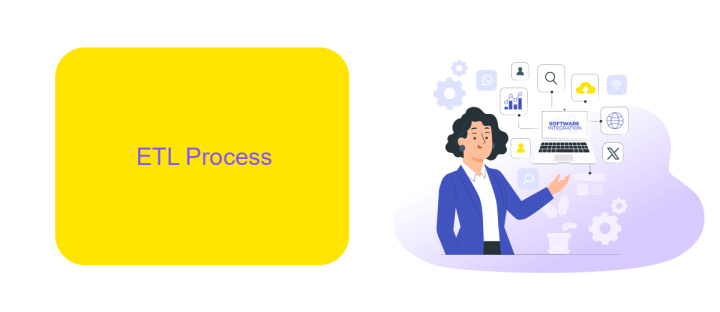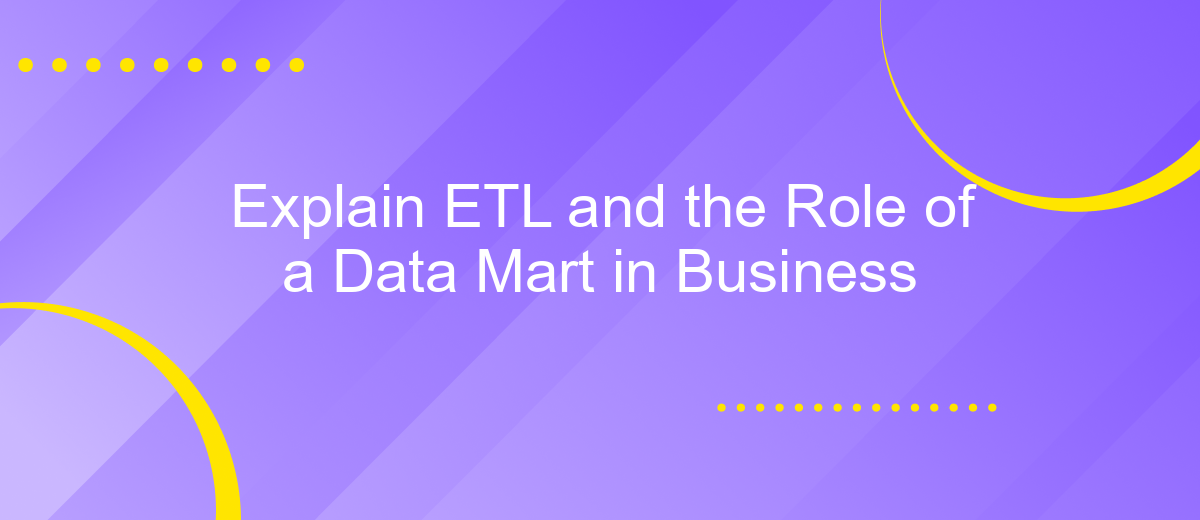Explain ETL and the Role of a Data Mart in Business
In today's data-driven world, businesses rely heavily on efficient data management to stay competitive. ETL (Extract, Transform, Load) processes play a critical role in consolidating data from various sources, transforming it into actionable insights. A data mart, a subset of a data warehouse, further enhances this by providing focused, subject-specific data to meet the analytical needs of specific business units.
Introduction
In today's data-driven world, businesses rely heavily on efficient data management processes to make informed decisions. One of the core components of this process is ETL (Extract, Transform, Load), a method used to collect data from various sources, transform it into a suitable format, and load it into a data warehouse or data mart. A data mart, in particular, plays a crucial role in providing specific business units with the data they need to perform their functions effectively.
- Extract: Gathering data from multiple sources.
- Transform: Converting data into a usable format.
- Load: Storing the transformed data into a data warehouse or data mart.
Integrating various data sources can be a complex task, but tools like ApiX-Drive simplify this process by offering seamless integration services. ApiX-Drive allows businesses to automate data flows, ensuring that data is consistently updated and readily available for analysis. By leveraging such tools, companies can enhance their data management strategies and make more accurate, data-driven decisions.
ETL Process

The ETL (Extract, Transform, Load) process is a crucial component in data management, facilitating the seamless flow of data from various sources into a centralized data warehouse. The first step, Extraction, involves collecting raw data from diverse sources such as databases, APIs, and flat files. This data is often unstructured and requires careful extraction to ensure no loss of valuable information. Tools like ApiX-Drive can simplify this step by automating the extraction process from multiple platforms, ensuring data consistency and reliability.
Once extracted, the data moves to the Transformation stage, where it is cleaned, normalized, and enriched to meet the analytical requirements of the business. This step may involve data cleansing, deduplication, and integration with other data sets. Finally, in the Load phase, the transformed data is loaded into a data warehouse or data mart, making it readily available for business intelligence and analytics. Efficient ETL processes ensure that businesses have timely and accurate data, enabling better decision-making and strategic planning.
Data Mart Overview

A Data Mart is a specialized subset of a data warehouse, designed to focus on a specific business area or department. It provides users with access to relevant data, enabling them to make informed decisions quickly. Data Marts are tailored to meet the unique requirements of a particular group within an organization, such as sales, finance, or marketing.
- Subject-Oriented: Data Marts are organized around specific subjects or business areas.
- Integrated: They consolidate data from various sources, ensuring consistency and accuracy.
- Time-Variant: Data Marts maintain historical data to analyze trends over time.
- Accessible: They provide easy access to data for end-users through user-friendly interfaces.
Setting up a Data Mart involves extracting data from multiple sources, transforming it to fit the specific needs of the business area, and loading it into the Data Mart. Services like ApiX-Drive can simplify this process by automating data integration from various platforms, ensuring seamless and efficient data flow. This enables businesses to focus on analysis and decision-making rather than managing complex data pipelines.
Business Use Cases

ETL (Extract, Transform, Load) processes and data marts play crucial roles in various business scenarios. They enable organizations to efficiently manage and utilize their data, leading to improved decision-making and operational efficiency. One primary use case is in the retail industry, where businesses can analyze sales data to determine trends and optimize inventory levels.
Another significant use case is in the financial sector, where ETL processes help in consolidating data from different sources for accurate financial reporting and fraud detection. By integrating data from multiple systems, companies can gain a comprehensive view of their financial health and identify any discrepancies or irregularities.
- Customer Relationship Management (CRM): Enhancing customer insights and personalizing marketing strategies.
- Supply Chain Management: Optimizing logistics and reducing operational costs.
- Healthcare: Improving patient care by integrating medical records and treatment data.
In addition, services like ApiX-Drive facilitate seamless integration of various data sources into a unified system, streamlining the ETL process. By automating data transfers and transformations, businesses can save time and reduce the risk of errors, ensuring that their data marts are always up-to-date and accurate.
- Automate the work of an online store or landing
- Empower through integration
- Don't spend money on programmers and integrators
- Save time by automating routine tasks
Conclusion
In conclusion, ETL (Extract, Transform, Load) processes play a critical role in managing and utilizing data effectively within a business environment. By systematically extracting data from various sources, transforming it into a usable format, and loading it into a data warehouse or data mart, businesses can ensure that their data is accurate, consistent, and readily available for analysis. This streamlined approach not only enhances decision-making but also improves operational efficiency.
Data marts further amplify the benefits of ETL by providing specialized subsets of data tailored to the needs of specific departments or business units. This targeted approach allows for quicker access to relevant information, fostering more informed and timely decisions. Tools like ApiX-Drive can significantly simplify the integration and automation of ETL processes, making it easier for businesses to connect various data sources and ensure seamless data flow. Ultimately, the synergy between ETL processes and data marts empowers businesses to leverage their data assets to drive growth and innovation.
FAQ
What is ETL?
How does ETL work?
What is a data mart?
Why are data marts important for businesses?
How can businesses automate ETL processes and integrate data marts?
Do you want to achieve your goals in business, career and life faster and better? Do it with ApiX-Drive – a tool that will remove a significant part of the routine from workflows and free up additional time to achieve your goals. Test the capabilities of Apix-Drive for free – see for yourself the effectiveness of the tool.


